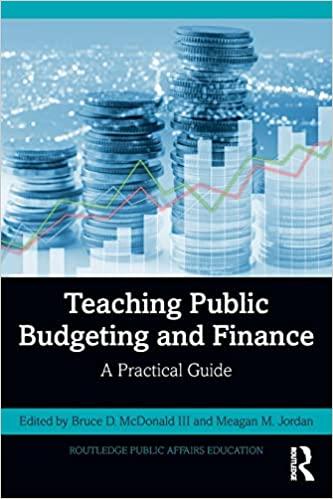| Bond X is a premium bond making semiannual payments. The bond pays a coupon rate of 9 percent, has a YTM of 7 percent, and has 15 years to maturity. Bond Y is a discount bond making semiannual payments. This bond pays a coupon rate of 7 percent, has a YTM of 9 percent, and also has 15 years to maturity. The bonds have a $1,000 par value. | | What is the price of each bond today? (Do not round intermediate calculations. Round your answers to 2 decimal places, e.g., 32.16.) | | | | | Price of Bond X | $ | | Price of Bond Y | $ |
| | If interest rates remain unchanged, what do you expect the price of these bonds to be one year from now? In six years? In 11 years? In 13 years? In 15 years? (Do not round intermediate calculations. Round your answers to 2 decimal places, e.g., 32.16.) | | Price of bond | Bond X | Bond Y | | One year | $ | $ | | Six years | $ | $ | | 11 years | $ | $ | | 13 years | $ | $ | | 15 years | $ | $ |
| Bond X is a premium bond making semiannual payments. The bond pays a coupon rate of 9 percent, has a YTM of 7 percent, and has 15 years to maturity. Bond Y is a discount bond making semiannual payments. This bond pays a coupon rate of 7 percent, has a YTM of 9 percent, and also has 15 years to maturity. The bonds have a $1,000 par value. | | What is the price of each bond today? (Do not round intermediate calculations. Round your answers to 2 decimal places, e.g., 32.16.) | | | | | Price of Bond X | $ | | Price of Bond Y | $ |
| | If interest rates remain unchanged, what do you expect the price of these bonds to be one year from now? In six years? In 11 years? In 13 years? In 15 years? (Do not round intermediate calculations. Round your answers to 2 decimal places, e.g., 32.16.) | | Price of bond | Bond X | Bond Y | | One year | $ | $ | | Six years | $ | $ | | 11 years | $ | $ | | 13 years | $ | $ | | 15 years | $ | $ |
| Bond X is a premium bond making semiannual payments. The bond pays a coupon rate of 9 percent, has a YTM of 7 percent, and has 15 years to maturity. Bond Y is a discount bond making semiannual payments. This bond pays a coupon rate of 7 percent, has a YTM of 9 percent, and also has 15 years to maturity. The bonds have a $1,000 par value. | | What is the price of each bond today? (Do not round intermediate calculations. Round your answers to 2 decimal places, e.g., 32.16.) | | | | | Price of Bond X | $ | | Price of Bond Y | $ |
| | If interest rates remain unchanged, what do you expect the price of these bonds to be one year from now? In six years? In 11 years? In 13 years? In 15 years? (Do not round intermediate calculations. Round your answers to 2 decimal places, e.g., 32.16.) | | Price of bond | Bond X | Bond Y | | One year | $ | $ | | Six years | $ | $ | | 11 years | $ | $ | | 13 years | $ | $ | | 15 years | $ | $ |
| Bond X is a premium bond making semiannual payments. The bond pays a coupon rate of 9 percent, has a YTM of 7 percent, and has 15 years to maturity. Bond Y is a discount bond making semiannual payments. This bond pays a coupon rate of 7 percent, has a YTM of 9 percent, and also has 15 years to maturity. The bonds have a $1,000 par value. | | What is the price of each bond today? (Do not round intermediate calculations. Round your answers to 2 decimal places, e.g., 32.16.) | | | | | Price of Bond X | $ | | Price of Bond Y | $ |
| | If interest rates remain unchanged, what do you expect the price of these bonds to be one year from now? In six years? In 11 years? In 13 years? In 15 years? (Do not round intermediate calculations. Round your answers to 2 decimal places, e.g., 32.16.) | | Price of bond | Bond X | Bond Y | | One year | $ | $ | | Six years | $ | $ | | 11 years | $ | $ | | 13 years | $ | $ | | 15 years | $ | $ |
| | | | |






